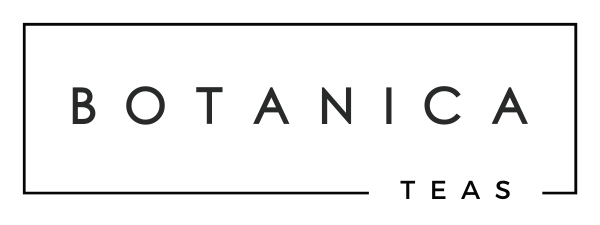When you hear the word "tea" you probably envision a cozy mug of steaming liquid brewed ranging from green tea to herbal teas, but the term "tea" is specific to the tea plant, Camellia sinensis, and due to its processing through oxidation, the tea plant has many variations like white tea, green tea, black tea and so on.
All other plants brewed for drinking fall under the category of tisanes.
What is a tisane?
Tisanes, pronounced "ti-zahn", simply put is an herbal tea. But instead of being made from one plant, like true tea which is made from the tea plant, Camellia sinesis, tisanes can be made from all sorts of edible plants, and various parts of those edible plants, such as the leaves, flowers, roots, or berries.
Tisanes are typically formulated with a specific medicinal effect in mind and a well-crafted herbal blend will consist of herbs that work together to serve a greater purpose or effect on the body, mind, and soul.
Benefits of Drinking Tisanes Daily
Tisanes (herbal teas) are often consumed for their potential health benefits. These health benefits can vary greatly depending on which herbs are used as each plant have differenet uses and benefits. This benefits can also vary depending on which part of the plant is used, for example, the root verse the leaf.
Some potential benefits of herbs:
- Digestive Aid: Many herbal tisanes, such as ginger or peppermint, are known for their digestive-soothing properties.
- Antioxidant Boost: Certain tisanes, like rosehips, are rich in antioxidants, which can help combat oxidative stress in the body.
- Calming Effects: Tisanes like lemon balm are renowned for their calming and sleep-promoting effects, making them a popular choice for bedtime sippers.
- Immune System Support: Some tisanes, including elderberry and echinacea, are believed to support immune system function, potentially helping the body fend off illnesses.
- Liver Aid: Certain herbs used in tisanes, such as dandelion root and burdock root, are thought to support liver health by aiding in detoxification processes.
- Brain Support: Tisanes containing herbs like ginkgo biloba, gotu kola and mints may offer cognitive benefits, supporting brain health and potentially enhancing memory and concentration.
Discover our mindfully blended organic loose-leaf tisanes, learn more.
Brewing the Perfect Tisane
When brewing tisanes make sure to choose quality ingredients. Opt for organic or sustainably sourced herbs and fruits for the best flavor and potential health benefits. Make sure to store your herbs away from light in a cool, dark place, such as a cabinet or pantry and always make sure they are in an air tight container.
Unlike traditional teas, which often require precise water temperatures, tisanes are more forgiving. There are a two common methods to brew tisanes: infusions and decoctions.
The difference, infusions are made with the more delicate parts of the plant and therefore are steeped and decoctions are made with the rooty tougher part of plants and require simmering.
How to Make Infusions
Infusions are a simple and effective way to extract the flavors and beneficial properties from herbs, flowers, or fruits. Here's a basic guide to making herbal infusions:
- Bring fresh, filtered water to a boil. The amount of water will depend on how strong you want your infusion to be.
- In a heat safe container, such as a teapot or mason jar, add the herbs.
- Carefully pour the boiling water over the herbs, ensuring they are fully submerged. If needed stir the herbs so they are submerged in the water.
- Allow the infusion to steep for about 10 minutes, or longer for a stronger flavor. Covering the container during steeping can help retain volatile oils and flavors.
- After steeping, strain the infusion to remove the solids. Enjoy hot or iced.
How to Make Decoctions
Decoctions are a traditional method of extracting the active compounds from harder, tougher more fibrous parts of the plant, such as roots, bark, or seeds. Here's how to make a decoction:
- Place the herbs in a pot and add cold water over the herbs and cover with a lid. The ratio of water to plant material will depend the desired strength of the decoction.
- Bring the mixture to a gentle simmer over low heat. Allow it to simmer for 20-30 minutes, or even longer for tougher materials, stirring occasionally.
- Once the decoction is ready, strain out the plant material using a fine mesh strainer or cheesecloth. Store the liquid in a clean container with tight fitting lid in the refrigerator and use within a few days. Enjoy hot or iced.
Tisanes offer a nourishing journey into the world of plants and herbs, providing a caffeine-free alternative to traditional teas. Whether you're seeking a soothing bedtime beverage or a flavorful treat to brighten your day, tisanes can offer nourishment to the mind, body and soul.
FAQ
Do herbal teas have caffeine?
No, herbal teas can be enjoyed any time of day since they are naturally caffeine-free, unlike the tea plant, which is made from the Camellia sinesis plant and does contain caffeine.

